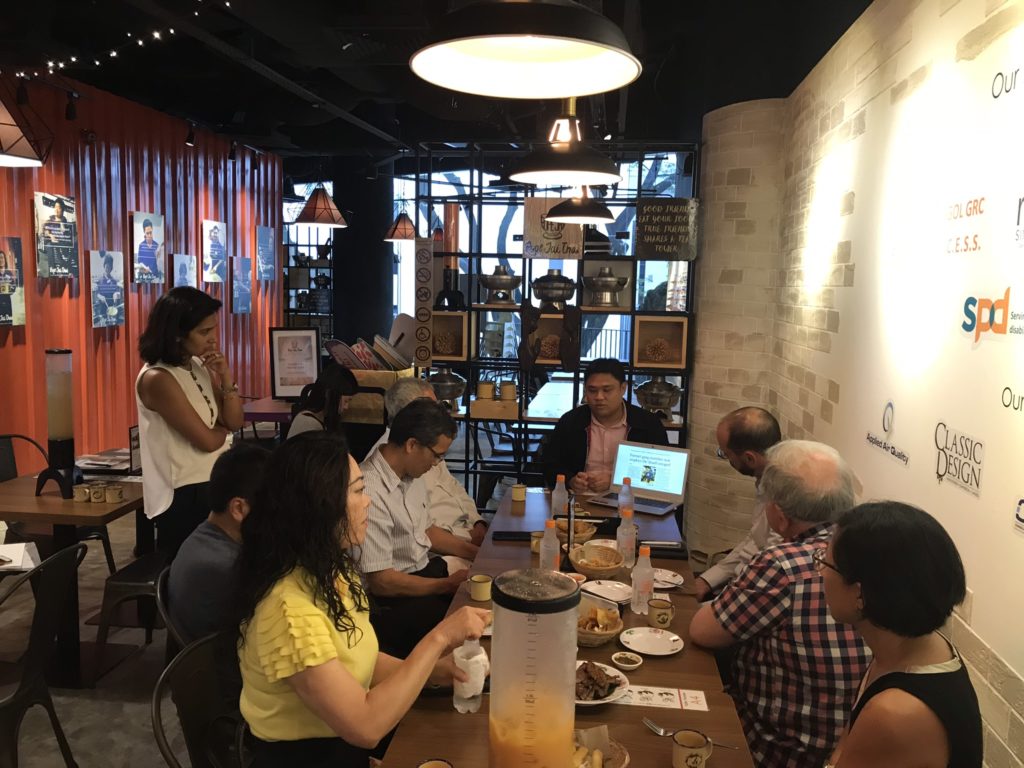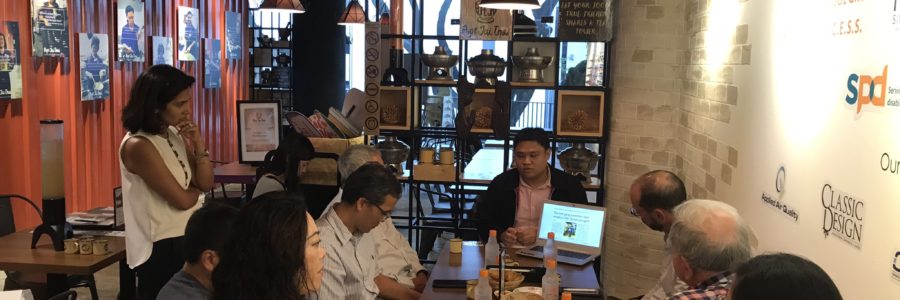By Valentina Ko
APC members gathered together at *SCAPE on 18 August for the second meeting of the social entrepreneurship member interest group (MIG). The meeting was held at *SCAPE, a non-profit organisation with its mission and vision rooted in support of youth, talent and leadership development.

Members first met at Pope Jai Thai, a food and beverage social enterprise that works with different beneficiary groups. Owner of Pope Jai Thai, Daniel Teh introduced himself to members and gave an overview of his journey from a previously incarcerated individual to owning his own restaurant now and working with vulnerable communities to empower them. Daniel shared his vision and ideas for the future of social enterprises through technology and innovation. During the member Q&A session, Daniel related his experience of maintaining the ability to sustain his business during challenging times. Members then reconvened to Hubquarters at *SCAPE where they were given a presentation of *SCAPE Hubquarter’s mission for youth talent development and the steps that Hubquarters are taking to ensure a stabilised landscape for future social entrepreneurs through mentoring programmes and giving them access to various resources.
Members also brought in their own personal experience with different kinds of social enterprises. Most commonly, members have been involved in funding and helping social entrepreneurs scale their projects. The vision our members have collectively for the social entrepreneurship landscape is to create an environment where all enterprises become social enterprises and together, create social impact. When enterprises are only driven by profit, they tend not to be as motivated and strong in their values, resulting in a weaker decision making process. However, an enterprise with a commitment to a cause would have more stakeholders involved and ultimately make more socially conscious decisions in the process of their programming. Despite that, there is a lack of visibility for social enterprises in Singapore and as a result, local social enterprises do not receive as much funding as non-profit organisations.
Before the end of the meeting, members learned about the Ashoka Fellows Programme, which is a life-long fellowship that supports changemakers throughout he world. Ashoka, together with APC hopes to revitalise their Indonesian Fellows programme and members were able to exchange their experiences with Ashoka regarding how they felt was the best approach for the Indonesia social entrepreneurship market.
Members walked away from the meeting with many takeaways. Members also expressed interest in visiting other venues and platforms of social enterprises so that they can engage with entrepreneurs at varying stages of the conceptualisation of their ideas. Staying true to APC’s mission of the MIG meetings to help members exchange, learn and collaborate, members can eventually explore the social enterprise landscape beyond funding and be more involved in the process of changing the social entrepreneurship ecosystem in Singapore.

